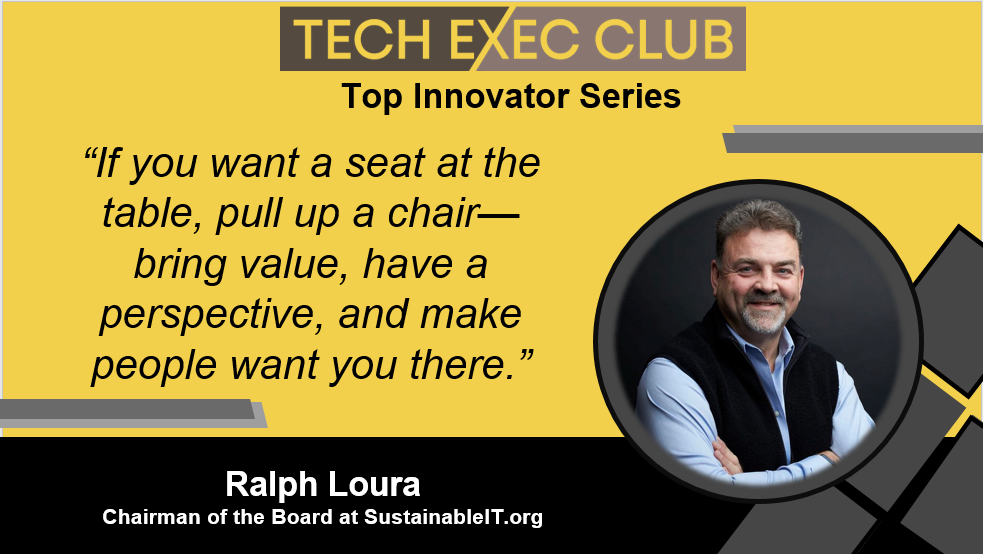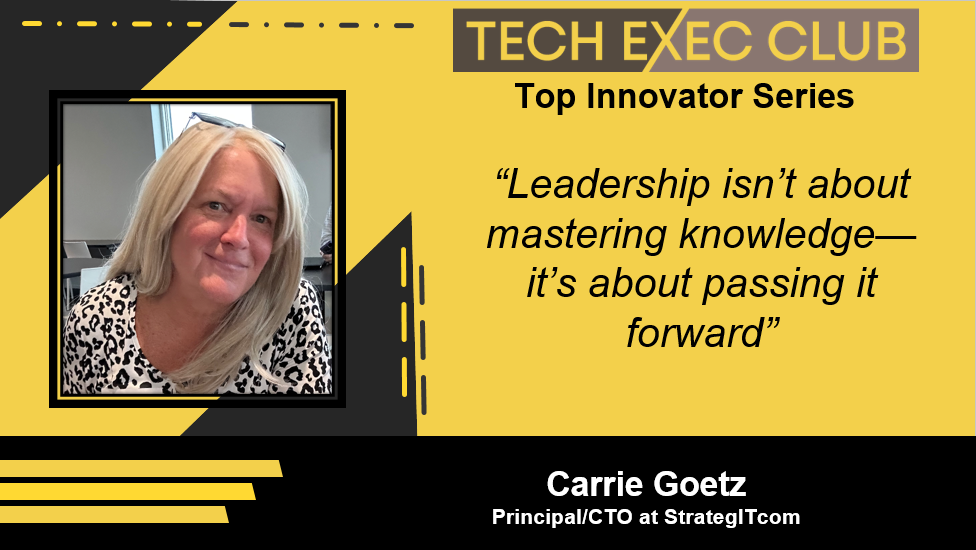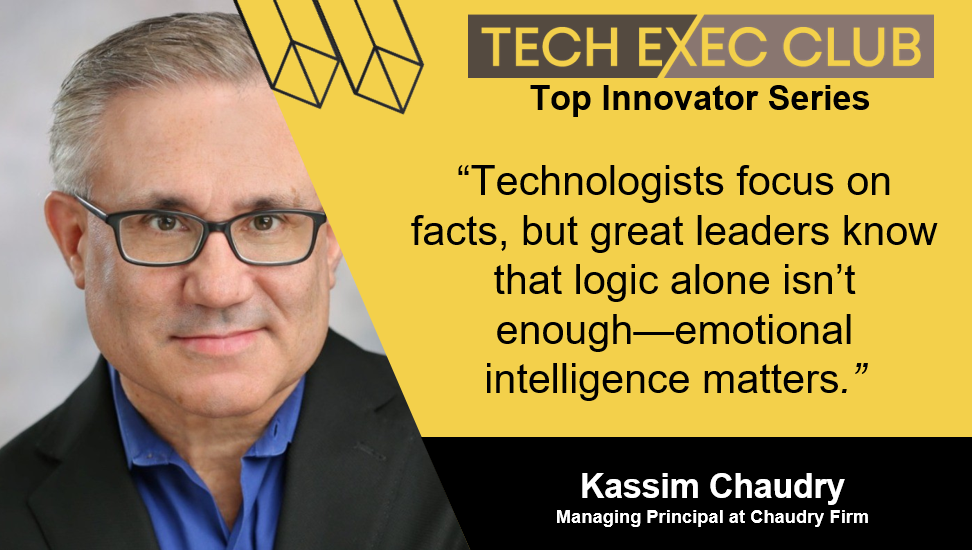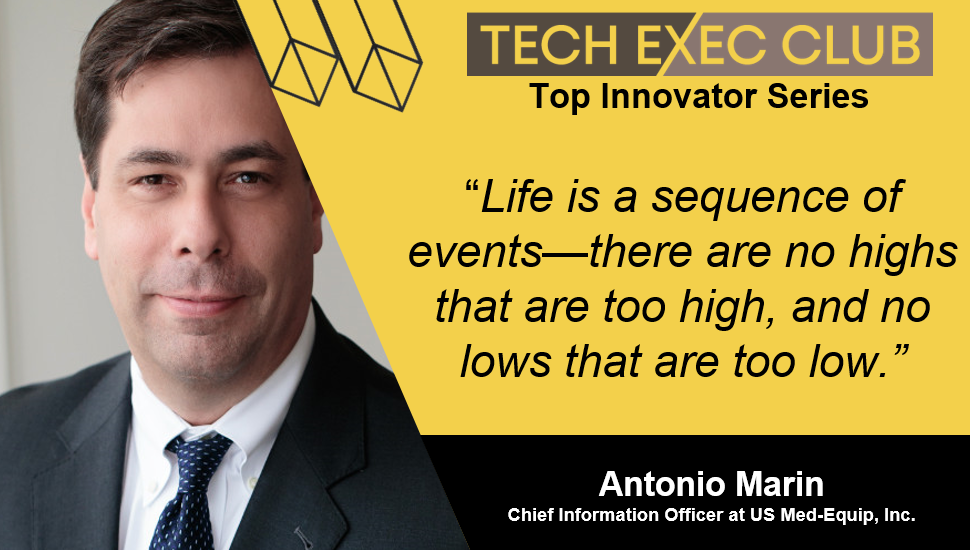In a rapidly changing world where technology and innovation drive success, Ralph Loura has mastered leading through transformation. As a seasoned CIO and now a champion of sustainable IT, Ralph has spent decades shaping organizations, fostering cultures of curiosity, and encouraging teams to embrace discomfort as a catalyst for growth. His leadership philosophy, built on principles like “being a lens, not a mirror” and creating a “technology petting zoo,” has inspired leaders to rethink how they tackle challenges and nurture innovation.
In this exclusive interview, Ralph delves into the building blocks of his success, sharing insights on fostering the right mindset, assembling high-performing teams, and navigating the delicate balance between risk and stability. From questioning first principles to continuously improving, his approach offers a playbook for leaders eager to make a lasting impact.
Building Teams for Transformation: Curiosity and Resilience at the Core
In a world defined by rapid technological shifts and ever-changing business landscapes, Ralph Loura believes that building the right team is the first and most critical step to leading innovation. “Not everybody wants to be on a journey of transformation or innovation,” Ralph says. “Some people are comfortable with the status quo.”
To create a team that can navigate change, Ralph looks beyond traditional qualifications and focuses on mindset. He seeks curious and resilient individuals—those who thrive on the thrill of solving complex problems and are unafraid of ambiguity. For him, curiosity isn’t just a nice-to-have trait; it’s a necessity. “I want everybody to be curious,” he explains. “Go beyond the formal meetings. Have lunch with colleagues, bump into them for coffee, and get to know their world. In those moments, you’ll discover what matters to them and their challenges.”
Ralph’s rejection of “bimodal organizations,” which segregate teams into those driving innovation and maintaining stability, underscores his belief that innovation and operational excellence are not mutually exclusive. “Who wants to be on the slow team?” he asks rhetorically. Instead, he advocates for a unified culture where every team member feels responsible for maintaining stability and pursuing growth.
Finding the right people can be challenging. “If you don’t know someone’s past work, look for telltale signs of their adaptability,” Ralph advises. One method he uses is observing how individuals react to discomfort. “If you’re not curious or prefer staying in your office, I have trouble working with that,” he adds. His emphasis on curiosity, collaboration, and willingness to embrace discomfort creates an environment where innovation becomes inevitable.
Leading with a Lens: A Framework for Problem-Solving
One of Ralph Loura’s most profound insights is the distinction between being a lens and a mirror. While a mirror reflects exactly what’s presented, a lens gathers light from multiple sources and focuses it, revealing new insights. For Ralph, this metaphor captures the essence of effective leadership.
“In many organizations, leaders act like mirrors,” Ralph explains. “They ask stakeholders what they need, create a list of tasks, and then reflect on those. But this approach often results in mutual disappointment because it doesn’t solve the real problems.” Instead, Ralph champions the lens approach: gathering diverse perspectives and focusing them to uncover innovative solutions.
Take, for instance, a typical interaction with a CFO. Instead of simply listing their requested tasks, Ralph expands the dialogue by integrating insights from other parts of the organization, such as supply chain, engineering, or sales. He also brings in his understanding of industry trends and emerging technologies. “Maybe the solution isn’t a laundry list of tasks. Maybe it’s something transformative,” he explains.
This lens approach transforms conversations from transactional to visionary. By reframing challenges, leaders can move beyond short-term fixes and deliver solutions that drive lasting impact. “It’s about having a point of view and sharing it constructively,” Ralph says. “You’re not being disruptive for the sake of it—you’re challenging the status quo to create something better.”
The Technology Petting Zoo: Cultivating a Culture of Exploration
For Ralph Loura, innovation begins with demystification. His concept of a “technology petting zoo” epitomizes this philosophy. Ralph fosters a culture of exploration and learning by creating spaces where teams can interact with emerging technologies in a hands-on, low-pressure environment.
“People fear what they don’t understand,” Ralph observes. “But if you can demystify technologies early, you help the whole organization embrace them differently.” His technology petting zoo includes tools like 3D printers, small AI models, and cloud-based quantum computing environments. These resources aren’t just for IT teams; they’re accessible to anyone curious about how these technologies work and how they might be applied.
This approach is about more than technical fluency—it’s about building confidence. When teams can experiment without fear of failure, they’re more likely to think creatively and propose bold ideas. “Innovation comes from being comfortable with being uncomfortable,” Ralph explains. “And the best way to get comfortable is to engage directly with what you don’t know.”
The petting zoo also encourages cross-disciplinary collaboration. A marketer might discover a use case for AI through experimentation, while an engineer might see potential in 3D printing for prototyping. By breaking down silos and sparking curiosity, the technology petting zoo becomes a breeding ground for innovation.
Digital Transformation Without Borders: Embracing Continuous Improvement
Ralph has a simple yet transformative view of digital transformation: it has no finish line. “There’s this misconception that transformation is a project with a start and end date,” he says. “But the reality is, it’s a continuous journey.”
For Ralph, the key to success lies in incremental improvement. Transformation isn’t about delivering a massive overhaul overnight; it’s about setting benchmarks and iterating against them. “Each day, week, and quarter should bring improvement over the last,” he explains. This mindset ensures that organizations remain agile, adapting to new challenges and opportunities.
This philosophy challenges the traditional approach to transformation, which often focuses on achieving fixed deliverables. “If you think you’re ‘done,’ you’ve already fallen behind,” Ralph warns. By fostering a continuous learning and adaptation culture, he ensures that his teams stay ahead of the curve.
Ralph’s perspective on transformation is particularly relevant in today’s fast-paced world, where technology evolves at an unprecedented rate. His emphasis on agility and iteration provides a roadmap for organizations looking to survive and thrive in a constantly changing environment.
The Value of Mentors and Networks: Navigating Challenges
Ralph Loura’s leadership journey has been shaped by his insights and the wisdom of trusted mentors. He credits his success to having a “personal board of directors”—advisors who provide unvarnished feedback and guidance.
“Every successful leader has a set of go-to people,” Ralph says. These individuals aren’t just sounding boards; they’re truth-tellers who aren’t afraid to call him out when necessary. “Your organization may not always give you candid feedback, but your trusted network will,” he adds.
Ralph recalls advice from a mentor who introduced him to the “Law of 7 Dippings.” This concept emphasizes the need for repeated exposure to new ideas before fully embracing them they’re. “It takes time to bring people along,” Ralph explains. “Just because you’re there doesn’t mean everyone else is. You have to help them get there.”
Beyond mentors, Ralph emphasizes the value of fostering strong professional networks. These relationships provide not only guidance but also opportunities for collaboration. “Leadership isn’t a solo endeavor,” he says. “It’s about building a community of support and shared vision.”
Ralph Loura’s leadership journey and insights offer invaluable lessons for leaders, innovators, and anyone seeking to drive meaningful change. Here’s how you can apply his principles to your organization or personal growth:
- Assemble Teams with the Right Mindset: Look for individuals who demonstrate curiosity, resilience, and a willingness to embrace discomfort. Foster collaboration by encouraging informal connections, such as coffee chats and lunches, to build trust and mutual understanding. Avoid segregating innovation and stability. Empower every team member to contribute to both growth and operational excellence.
- Adopt the Lens, Not the Mirror, Approach: Move beyond reflecting on problems or requests and focus on integrating diverse perspectives to redefine challenges and uncover transformative solutions. Engage with stakeholders across departments to gather insights and explore cross-functional opportunities. Bring your point of view to conversations. Challenge the status quo constructively to inspire better outcomes.
- Create a Culture of Exploration: Establish a “technology petting zoo” where teams can interact with emerging tools like AI, 3D printing, or quantum computing in a low-pressure environment. Encourage hands-on experimentation to demystify new technologies and build confidence. Use these experiences to foster creativity and spark innovative solutions.
- Commit to Continuous Transformation: View transformation as an ongoing journey rather than a one-time project. Set benchmarks for improvement and regularly iterate against them. Cultivate agility within your organization to adapt to the ever-changing business and technological landscape.
- Leverage Mentors and Networks: Build your own “personal board of directors”—trusted advisors who provide honest feedback and guidance during critical moments. Practice patience and persistence when introducing new ideas, understanding that it takes time for others to embrace change. Invest in your professional network to foster collaboration and shared growth.
Ralph Loura is a visionary leader who has consistently demonstrated the power of curiosity, collaboration, and continuous improvement. His ability to navigate complex challenges while inspiring teams to innovate has left an enduring legacy in the tech world. From championing the “lens versus mirror” approach to pioneering the concept of a “technology petting zoo,” Ralph’s philosophies are a blueprint for success in today’s dynamic landscape.
As chairman of SustainableIT.org, Ralph continues to redefine leadership by addressing global challenges with a collaborative and forward-thinking approach. His journey reminds us that true innovation requires technical expertise and a deep commitment to empowering others. By embracing his principles, leaders everywhere can unlock the potential within their teams and create a lasting impact.
Ralph Loura’s story is more than an account of success; it’s an invitation to reimagine what leadership can achieve in the face of complexity and change.






